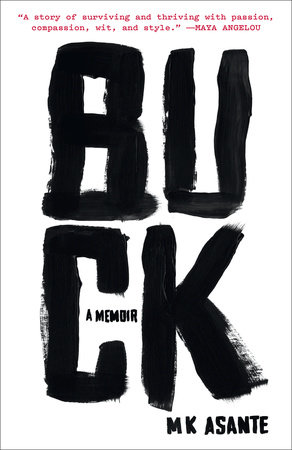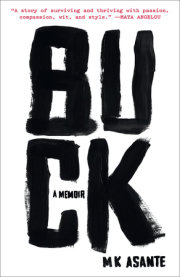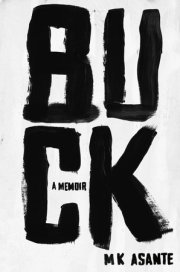1
The Fall
The fall in Killadelphia. Outside is the color of corn bread and blood. Change hangs in the air like the sneaks on the live wires behind my crib. Me and my big brother, Uzi, in the kitchen. He’s rolling a blunt on top of the Source, the one with Tyson on the cover rocking a kufi, ice-grilling through the gloss. Uzi can roll a blunt with his eyes closed.
Cracks, splits, busts.
“The rawest crews in Philly are all three letters,” he tells me. I read the cover through the tobacco guts and weed flakes: “The Rebirth of Mike Tyson: ‘I’m Not Good. I’m Not Bad. I’m Just Trying to Survive in this World.’ ”
Awaking crews in a rude fashion
On they ass like Mike Tyson at a beauty pageant 1
I do this--spit lyrics to songs under my breath--all day, every day. The bars just jump out of me no matter where I am or what I’m doing. It’s like hip-hop Tourette’s.
Dumps, spreads, evens.
“JBM--Junior Black Mafia. Of course us, UPK--Uptown Killaz. PHD--Play Hero and Die.”
Tears, licks, wraps.
“HRM--Hit Run Mob. EAM--Erie Ave. Mobsters. ABC--Another Bad Creation.”
Folds, rolls, tucks. Another perfect blunt, jawn looks like a paintbrush.
Jawn can mean anything--person, place, or thing. Sometimes if we’re telling a story and don’t want people to know what we’re talking about, we’ll plug jawn in for everything. The other day I was at the jawn around the corner with the young jawn from down the street. We get to the jawn, right, and the ngh at the door is all on his jawn, not knowing I had that jawn on me. Man, it was about to be on in that jawn.
“Then you got all the songs: AFD--‘Ass for Days,’ CIA--‘Crack in America,’ FAG--‘Fake Ass Gangsta,’ HAA--‘Here’s Another Asshole,’ OPP--‘Other People’s Property,’ PWA--‘Pussy Weed Alcohol,’ and Philly’s own PSK--‘Park Side Killas.’ ”
“Schoolly D . . .” I hear Schoolly D’s voice in my head. “PSK, we makin that green . . . ,” I start.
“People always say, ‘What the hell does that mean?’ ” Uzi finishes.
“P is for the people who can’t understand how one homeboy became a man . . .” Both bopping to the subs in our domes. Boom, bap bap, boom-bap.
“S is for the way we scream and shout . . .”
“One by one . . .” He lands a soft hook on my cheek.
“I knock ’em out!” we both rap, laughing as he follows his punch through. I try to tap his chin but can’t reach.
“Your arms too short to box with God,” he says like Big Daddy Kane in “Mortal Combat,” Uzi’s anthem.
Uzi is the color of walnuts and has a long, sharp face like the African masks my dad hangs up everywhere. His name is Daahoud, my parents call him Daudi, and the hood calls him Uzi. He’s got a bunch of other names too, like some superhero: Oohwop, Daa-Ooh, Uzito, Wop da Culture, Cool D, Pinch P, Big Ooh, Barkalark, Droptimus Rhyme, Big Fly, and Stilt the Kilt.
A fast knock hits the window.
“Who dat?” Uzi says, running the flame across the blunt, drying it. I push the window open, cool air rushes in.
“Yo, what up, Malo?”
“It’s Ted!” I yell back to Uzi. “What up, Ted?” Ted is Uzi’s best friend. He’s like yay high, albino light, and bulldog stocky. He’s got a pug nose with freckles spread across it like crumbs. His nicknames are Ted Money, Reds the Ghost, Teddy Rux, and Thiefadore Burgalor.
“Where ya brother at?” Gold ropes dangle over his Tommy Hill hoodie, and the Beijing dye on his shape-up makes his hairline look airbrushed.
“Right here,” I say, leaning out the window. Uzi puts the blunt behind his ear. Pushes me aside.
“Ted Money, waddup?”
Ted checks both coasts like a lookout boy. “We got a car,” he says, hitchhiker thumb shooting backward. “A Johnny!”
“Who’s we?”
“Me, D-Rock, and you . . . if you down to roll?”
“Hell yeah,” Uzi says, no hesitation, then pivots toward the door. I follow him like his shadow.
And this is how it always goes: me following Uzi in everything, everywhere, like his little black Jansport, covered in Marks-A-Lot, strapped tight to his back--koala style. Anywhere, anyplace. He does it, I do it. He tries it, fuck it, I’m trying it. He can, shit, why can’t I? Sometimes I even duck like him under doorways, even though he’s way taller and I don’t need to duck. I guess I just do it because Uzi’s more than my big brother, he’s my idol. I don’t care that he’s taller, and older, and smarter. I wouldn’t even really know his age if old people weren’t always bringing that shit up, talking ’bout “you can’t do this, you can’t do that”--why?
“Because he’s sixteen and you’re twelve,” they say.
I follow him to sweaty Badlands house parties that always end in crazy, shirtless rumbles with everybody howling “Norf-side! Norf-side!” in the middle of the street. To Broad and Rockland to cop dime bags from one of the dusty bodegas with nothing but baking soda and expired Bisquick on the shelves. To freestyle cyphers on South Street that the nut-ass police always break up for no reason. To crack on jawns getting off the El at 69th Street, like, “Yo, shawty, let me holla at you for a minute.” To scale the fence to watch Sad Eye, the Jordan of street ball, hoop at 16th and Susquehanna. To skate the ledges and steps at Love Park until we get chased away by the cops. To bomb the Orange Line subway with Sharpies and Kiwi polish sticks.
And now, to joyride through Philly in a stolen wheel.
Being with Uzi makes me feel invincible, like nothing bad can happen to us, like nothing and nobody can hurt us. I feel unfuckwitable.
I can see us now, peeling off, sound system booming louder than bombs, rolling down 5th Street, turning heads as we catch the breeze. This is how freedom must taste.
“Chill,” Uzi tells me, pushing me back. “Not this time.” Turns his shoulder.
“I’m down, though,” I say, inching forward.
“I know,” he says. Grabs both my arms. “But not this time.” He lets go. Palms the doorknob.
Now I’m picturing the car spin, all of us laughing, half hanging out the window, tires screaming as we bust victory donuts.
“I’m coming!” I shout loud enough for Ted to hear.
“Ma-lo!” Uzi shoves me into the radiator. His eyes tell me to chill. “I’ll be back.” Shuts the door.
Through the window, I watch them sprint toward a blue Chevy Celebrity. Jailbreak joyful, their stride says they’ll never come back.
Ten minutes later--
Uzi and Ted explode back into the crib looking like they just saw a ghost. I’m still in the kitchen, still mad about not rolling.
“Oh shit, oh shit, oh shit!” they gasp, jetting right by me.
“Get in your room, Malo!” Uzi yells. They bolt upstairs, doors slamming everywhere like a haunted house. Before I hit the stairs, I peek out the window--oh shit, oh shit, oh shit! There’s a light show in front of the crib. Reds, blues, and a gang of whites. The most cops I’ve ever seen.
I hit the stairs, three at a time. I’m almost at the top when an earthquake hits the house. I spin around to see the front door fly off like back draft. It lifts, then slams hard against the wood floor. Black boots trample it like a bridge. The whole house is heaving. The sound of everything crashing, breaking. A battering ram leads a tsunami of blue in. They flood the house. Clenched Glocks pointing every which way.
“Police! Get down! Down!” a flushed red face yells. My fingers freeze on the banister as the tide climbs the stairs.
“Down! Down!” I’m stuck. Can’t move. Guns glaring at me, steely-eyed. Pee shoots down my leg.
“Fuck-ing down!” Dripping. They pry me from the banister. Drag me down the steps like a rag doll. Clothes ripping. My head hits every step like a mallet over a xylophone. When I get to the bottom, everything sounds gargled like I’m underwater, drowning.
Officer Red Face is six inches from my grill. “Where is he?” he screams through tight lips. Grabs me. “Where is he?” Shakes me. “Where?” Shaking the fuck out of me. Everything’s getting pixelated.
Red Face lets go, charges up the steps.
My eyes clear, refocus. I make out Uzi kneeling at the top of the steps, elbows over face, nightsticks marching on his head, hands, ribs, neck, back, everywhere. I feel every blow like they’re beating me too. I sprint up the stairs again, but they swallow me, holding me down, twisting my arms like a pretzel.
I hear my favorite voice--“Get the fuck off my little brother”--before I black out.
2
By the Time I Get to Arizona
Uzi tells me they tried to throw the book at him.
“You’re lucky you’re still a minor,” my pops tells him. “If you were eighteen, you’d be in the penitentiary.” He fills the doorway to Uzi’s room like a prison guard. I’m sitting on the bed, long-faced, watching Uzi pack for a one-way trip to Arizona.
My dad’s Afro is thick and flat at the back like how Muhammad Ali’s jawn was back in the day. He’s wearing a black and gold dashiki. He’s got a dashiki for every day of the year.
“I’m African,” he told Uzi and Ted the other day on the porch. Ted calls Pops “Dr. Africa.” “That’s why I wear African clothes.”
“But you’re from Georgia,” Uzi said.
“Being born in Georgia doesn’t make me an American any more than being born in an oven makes a cat a biscuit.”
“Huh?”
“There’s an African proverb that says, ‘No matter how long a log sits in a river, it will never become a crocodile.’ That means that even in a foreign habitat, a snail never loses its shell. Even in America, I’m still African.”
“Here he goes.” Uzi shook his head. “Always in his Afrocentric bag.”
The newspapers call our father “the father of Afrocentricity” because he created it.
My third eye is my rail, on this L of thought
With Afrocentric stamps I’m mailin thoughts 2
Pops is always preaching Afrocentricity. He was a Church of Christ minister way back when, one of those child preachers, and he still sounds like he’s in the pulpit when he talks about black people, white people, and the struggle. I remember this debate he took me to at East Stroudsburg University a few years back: him vs. Cornel West vs. Arthur Schlesinger. It was packed, standing room only. I remember how West, this cool black dude with a big Afro and a tight three-piece suit, talked with his hands flying fast like he was conducting an orchestra. And how Schlesinger, this old white guy with hair the color of milk and a red bow tie, sounded like a statue. I remember the cheers, the boos, the ad-libs. Most of all, though, I remember how dope my pops was: his passion, energy, confidence, intelligence. Half the time I didn’t even know what he was talking about--hegemony . . . pedagogy . . . subverting the dominant paradigm--but I was proud.
Back then I didn’t get it, but now I think I do. Afrocentricity basically means that black people should view the world through our own black eyes. It’s like the poster my dad has framed in the hallway that says, “A people without knowledge of their past is like a tree with no roots.”
Hit the Earth like a comet, invasion.
Nas is like the Afrocentric Asian, half-man, half-amazin 3
Our crib is mad Afrocentric: naked African statues standing everywhere, ritual masks ice-grilling down from the walls, portraits of Martin, Malcolm, Harriet. From the wallpaper to the plates, everything is stamped with Africa.
Even my favorite porn series, My Baby Got Back, is made by a company called Afro-Centrix Productions. “Beauties that give up the booty,” the box under my bed says. Mr. Marcus, Lexington Steele, and loudmouthed Wesley Pipes nailing Nubian queens like Janet Jacme, Obsession, Midori, Monique, and Lacey Duvalle in doggy style, reverse cowgirl, and missionary.
I tell Pops about the other Afro-Centrix and he’s disgusted. Say what? But he’s the one who’s always talking about how black people should have their own stores, own banks, own schools--shouldn’t we have our own porn studios too? What’s more Afrocentric than black pussy?
Uzi doesn’t really get down with Afrocentricity. I think he’s still mad about the whole Star Wars thing from when we were little. Uzi used to love Star Wars and he kept begging my parents for a Luke Skywalker action figure. Finally my dad took him to Toys R Us. They came back--Uzi was heated.
“He got me Lando Calrissian!” Uzi said.
“Who?”
“Exactly! Nobody knows who he is. Lando Calrissian!”
“Who that?”
“Fucking Billy Dee Williams! The corny black dude. He has no gun, no weapon, no special powers, and he talks like he’s in a goddamn Colt 45 commercial, like”--he lowered his voice--“ ‘the power of Colt 45 . . . works every time.’ ”
“They didn’t have Luke?”
“They had everybody--Luke, Obi-Wan, Han Solo--but Dad wouldn’t get them because they’re white.”
So now Uzi’s in his closet deciding what to take with him to Arizona.
“Make sure you leave this room better than you found it,” my dad says, scoping the mess.
“Whateva,” Uzi sighs, and tosses a shirt into his duffle.
“What’d you say?” My dad moves closer. I see his face clenching, like he wants to slap the shit out of Uzi. He won’t, though, because Uzi’s his stepson. Now if it were me, I’d be ducking haymakers. Uzi steps out of the closet. They’re a swing away from each other. My brother, at 6'6", Michael Jordan’s height, towers over my pops, who might be 5'7"--Spud Webb. Pops ain’t no slouch, though. He’s southern stocky, used to chase chickens and wrestle swamp thangs and chop firewood back in the day.
“What”--Uzi tilts his head like one side weighs more--“eva.”
Pops swallows hard. They eye each other down like the cowboys in the black-and-white Westerns my uncle John loves watching--toothpicks plugged into stone faces, beat-up brims, ashy steel toes.
I love a good fight, but I don’t want to see this. One day when Uzi was real mad at my dad, he told me if it ever came down to it, he’d fight my pops like “a ngh on the street.” I don’t want to see that, and I know deep down Uzi doesn’t want that either, but he’s a cannon. He’s got a Rasheed Wallace temper, so hot you can fry bacon on it.
“Finish packing. Be downstairs ready to go in thirty. You’re not welcome in this house anymore.”
1 “Wreck Your Ears (Can Do),” The B.U.M.S. (Brothas Under Madness), 1995.
2 “All Night Long,” Common, 1996.
3 “It Ain’t Hard to Tell,” Nas, 1996.
Copyright © 2013 by MK Asante. All rights reserved. No part of this excerpt may be reproduced or reprinted without permission in writing from the publisher.










